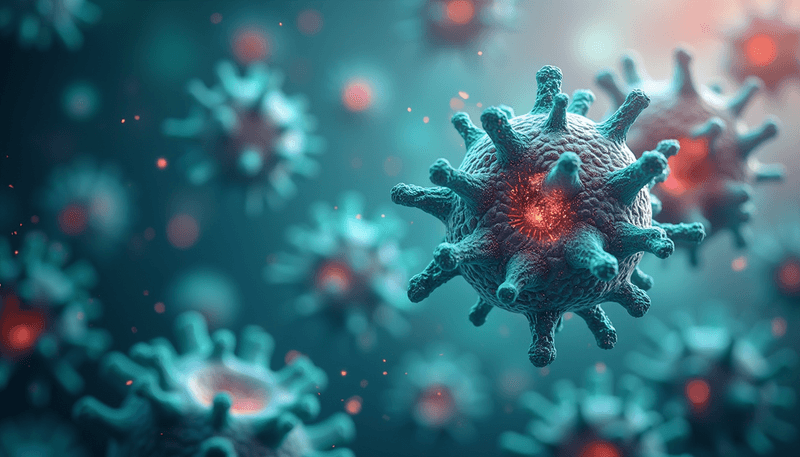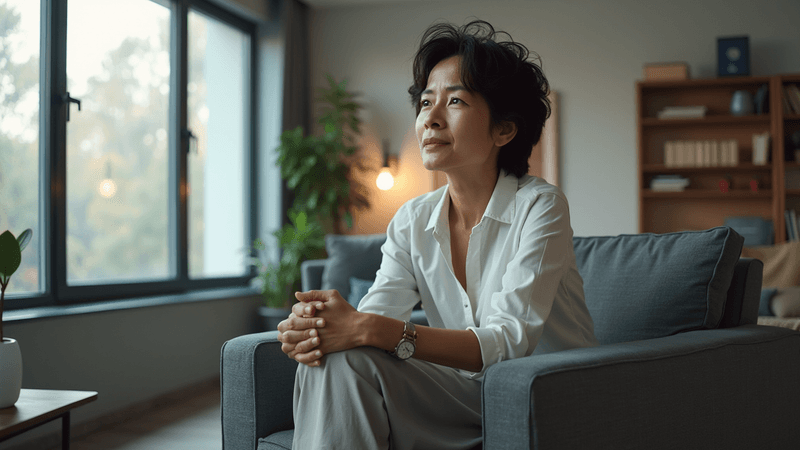Early Menopause: What You Need Know

The clock on my office wall showed 3 AM when I received an urgent email from Sarah, a 35-year-old breast cancer survivor struggling with early menopause symptoms after her treatment. Her story echoes the experiences of many women I've connected with through my work. Recent research reveals groundbreaking insights about ovarian suppression and its effects on early menopause, offering hope and understanding for women facing this challenge.
Understanding Ovarian Suppression and Early Menopause
Think of your ovaries as a symphony orchestra, with hormones as the musicians creating a beautiful harmony in your body. Ovarian suppression is like pressing the pause button on this orchestra, temporarily silencing the music. This medical intervention, while necessary for some conditions like hormone-sensitive breast cancer, can lead to early menopause-like symptoms.
What if someone told you that understanding your body's hormone symphony could help you navigate this journey better?
The research shows that approximately 70% of breast cancers are hormone receptor-positive, meaning they're fueled by hormones like estrogen. For young women with this type of breast cancer, ovarian suppression becomes a vital part of their treatment journey.
Managing Physical Changes
When I counsel women about early menopause symptoms, I often compare it to experiencing all four seasons in a single day - your body goes through multiple changes that can feel overwhelming. Here's what you need to know:
Hot Flashes and Night Sweats:
- Keep a cooling spray by your bedside
- Layer your clothing for easy adjustment
- Stay hydrated throughout the day
- Practice deep breathing exercises when you feel a hot flash coming
Bone Health:
- Regular weight-bearing exercises
- Adequate calcium and vitamin D intake
- Regular bone density screenings
- Discuss supplementation with your healthcare provider
Emotional Wellbeing and Quality of Life
The emotional impact of early menopause often goes undiscussed, yet it's equally important as the physical symptoms. Many women report feeling isolated or "different" from their peers. Here's what helps:
Building Your Support Network:
- Connect with support groups
- Share your experiences with trusted friends
- Consider professional counseling
- Join online communities of women with similar experiences
Have you ever felt like you're the only one experiencing these changes? You're not alone.
Sexual Health and Intimacy
One of the most significant yet least discussed aspects of early menopause is its impact on sexual health and intimacy. The research highlights that these changes are normal and manageable:
Physical Changes:
- Vaginal dryness
- Changes in libido
- Discomfort during intimacy
Management Strategies:
- Open communication with your partner
- Use of approved moisturizers and lubricants
- Regular consultations with your healthcare provider
- Pelvic floor exercises
The journey through early menopause isn't just about managing symptoms - it's about embracing a new chapter in your life with knowledge and confidence. Whether you're experiencing these changes due to medical treatment or natural causes, understanding your body and having access to proper support makes all the difference.
What's one small step you can take today to better support your body through these changes?
Your Next Steps:
- Schedule a comprehensive health check-up
- Start a symptom diary to track your experiences
- Join a local or online support group
- Have an honest conversation with your loved ones about your journey
Remember, early menopause is a journey, not a destination. With the right information and support, you can navigate this transition while maintaining your quality of life. Let's continue this conversation in the comments below - what aspects of early menopause would you like to learn more about?

Amelia Grace Okonkwo
Amelia Grace Okonkwo is a freelance health writer and author with over 15 years of experience in health journalism, specializing in women's health and autoimmune disorders. With a background in biology and a Master’s in Public Health from Johns Hopkins, she combines scientific accuracy with a storytelling approach to make health information accessible and empowering. Amelia is known for her bestselling book, "The Skin We're In," which explores autoimmune disorders and their impact. She is passionate about delivering practical health insights for women, addressing topics from midlife wellness to mental health.







